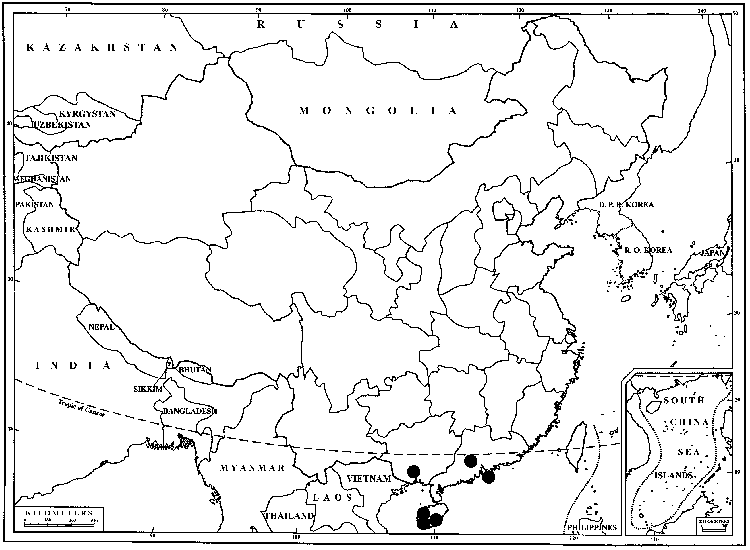Calymperes erosum
Linnaea 21: 182. 1848,.
Plants gregarious or tufted, green to brownish, often somewhat uncinate-curved at tips when dry, to 5 mm. Leaves dimorphic, the vegetative 2–3 mm; distal lamina broadly to narrowly lanceolate; margins somewhat thickened and toothed distally; costa in cross section showing ad- and abxaxial bands of stereid cells; medial cells obscure or distinct, 5–6 µm, minutely papillose ad- and abaxially; teniolae usually distinct at leaf shoulders and beyond but sometimes weak or interrupted; cancellinae usually broadly rounded distally, adaxial distal cells distinctly mammillose; gemmiferous leaves with apex of costa excurrent, bearing gemmae all around on apex of costa.
Habitat: Not producing sporophytes in the flora area. Tree bark, bases, and logs, hammocks and forests
Elevation: low elevations (0 m)
Distribution

Fla., Mexico, West Indies, Central America, South America, Europe, Asia, Africa, Atlantic Islands, Indian Ocean Islands, Pacific Islands, Australia.
Discussion
Calymperes erosum occurs rarely in peninsular Florida, but it is common in other parts of its range outside of the flora area. It may superficially resemble C. afzelii but can be easily distinguished by the mammillose distal adaxial cells of its cancellinae, and by bearing gemmae all around on the excurrent apex of the costa of gemmiferous leaves. The distal ends of the cancellinae are usually rounded, and the plants often have a pinkish tinge.
Selected References
None.